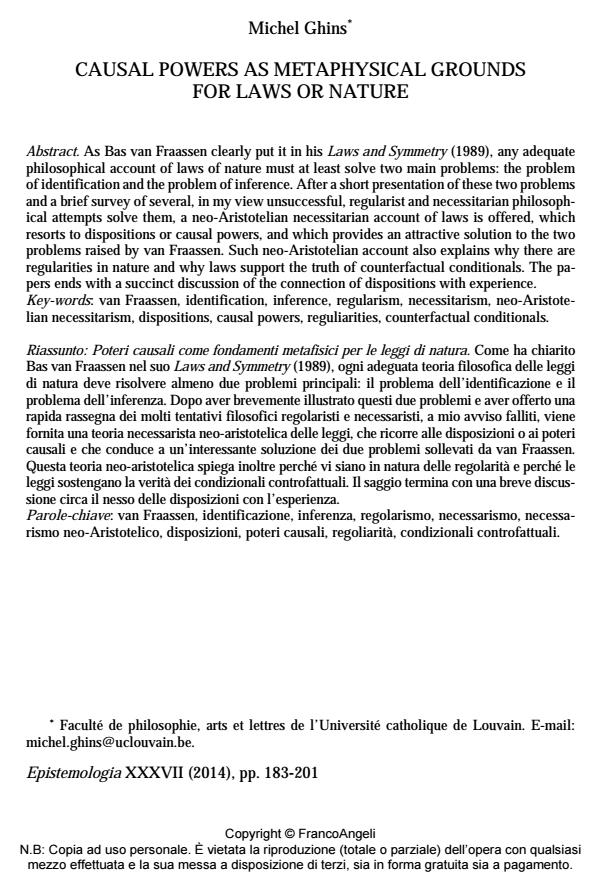Causal powers as metaphysical grounds for laws or nature
Journal title EPISTEMOLOGIA
Author/s Michael Ghins
Publishing Year 2015 Issue 2014/2
Language English Pages 19 P. 183-201 File size 138 KB
DOI 10.3280/EPIS2014-002001
DOI is like a bar code for intellectual property: to have more infomation
click here
Below, you can see the article first page
If you want to buy this article in PDF format, you can do it, following the instructions to buy download credits

FrancoAngeli is member of Publishers International Linking Association, Inc (PILA), a not-for-profit association which run the CrossRef service enabling links to and from online scholarly content.
As Bas van Fraassen clearly put it in his Laws and Symmetry (1989), any adequate philosophical account of laws of nature must at least solve two main problems: the problem of identification and the problem of inference. After a short presentation of these two problems and a brief survey of several, in my view unsuccessful, regularist and necessitarian philosophical attempts solve them, a neo-Aristotelian necessitarian account of laws is offered, which resorts to dispositions or causal powers, and which provides an attractive solution to the two problems raised by van Fraassen. Such neo-Aristotelian account also explains why there are regularities in nature and why laws support the truth of counterfactual conditionals. The papers ends with a succinct discussion of the connection of dispositions with experience.
Keywords: Van Fraassen, identification, inference, regularism, necessitarism, neo-Aristotelian necessitarism, dispositions, causal powers, reguliarities, counterfactual conditionals.
Michael Ghins, Causal powers as metaphysical grounds for laws or nature in "EPISTEMOLOGIA" 2/2014, pp 183-201, DOI: 10.3280/EPIS2014-002001